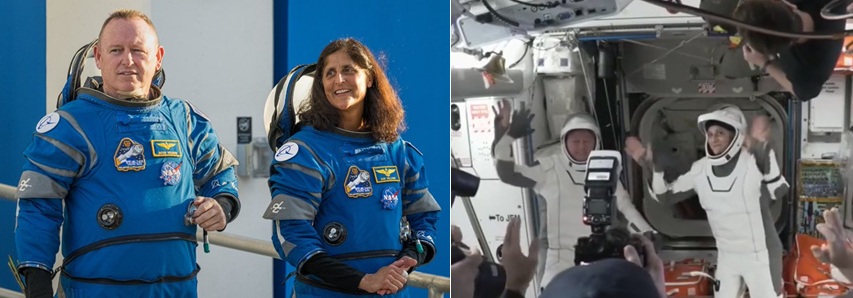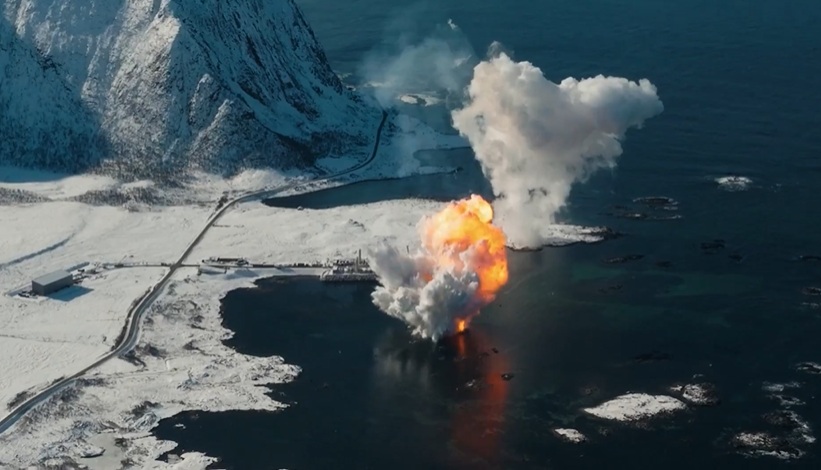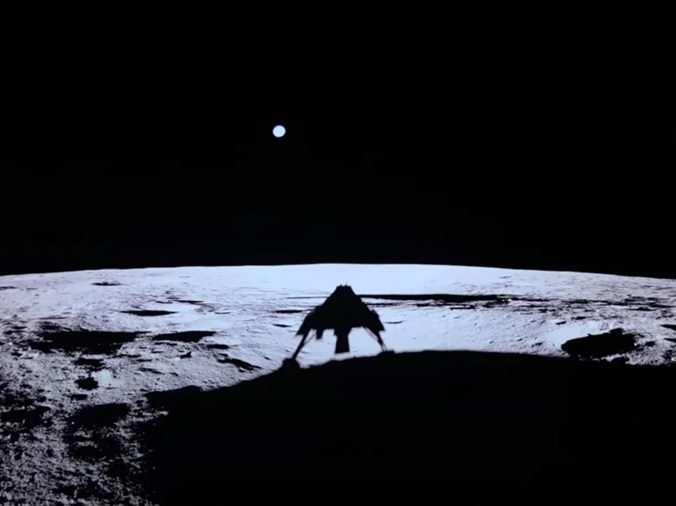We are cutting through the orbital debris for you. In other words, we’re keeping an eye on space news on the web so you don’t have to.
Here is our round-up of the most important, and interesting, space news stories of July (space orders can be found in another post):
Things going wrong
![]()
Two German military spy satellites, built by OHB, have failed to become operational, six months after they were placed into orbit.
ABL Space Systems also had a rough month, after one of its rockets was destroyed in a fire after a test-fire.
NASA’s Chandra may be in trouble, as a review finds that proposed cuts would effectively end operations for the telescope.
Space Debris
SpaceX changes splashdown zones to low risk US West Coast after Dragon trunks fall on North Carolina and Saskatchewan, after surviving its re-entry.
As ESA notes rise of space junk in Earth orbit, a little more space debris is in Earth orbit after Resurs P1 suffered a small explosive event.
Space collision risks are not just in Earth orbits, lunar spacecraft have to dodge other spacecraft too.
Human Spaceflight
![]() Boeing’s Starliner craft continues to be stuck at the ISS with the astronauts likely to return in August.
Boeing’s Starliner craft continues to be stuck at the ISS with the astronauts likely to return in August.
The crew for Blue Origin’s upcoming NS-26 mission was announced. It includes Karsen Kitchen who is set to become the youngest woman to cross the Kármán line during the mission.
Medical professionals and injured people being treated at one of the few remaining hospitals in Palestine will benefit from Starlink internet service, which was activated for the UAE Field Hospital by SpaceX.
Space Stations
Russian space agency Roscosmos is planning to build its own independent space station by 2033, to follow the demise of the ISS. Commercial organisations also have their eyes increasingly on the opportunities brought up by the end of the ISS. One of them, Sierra Space continued testing out its design, which happens to be for Orbital Reef, an inflatable commercial space station. Watch the inflatable module burst (on purpose) in a second full-scale test, here.
Space diplomacy and military space

Kazakhstan is the latest member to join China’s ILRS moon base programme joins China’s ILRS moon base program, bringing its total country members to 12 (China wants to grow this figure to 50).
Three people, hailing from the Netherlands and Belgium, were arrested at Baikonur spaceport for trespassing. It comes shortly after two French diggers were found beyond the security perimeter of the facility in early June.
The US Center for Strategic and International Studies published the seventh edition of Space Threat Assessment, an annual report looking at current space security threats.
Things are heating up in the run-up to the US election – here’s what it could mean for space policy if Donald Trump is elected as President for a second term.
The US and Saudi Arabia signed an agreement for more collaboration with NASA in civil space.
India is putting its money where its mouth is, with a four per cent increase to its budget estimate for its Department of Space in 2024-2025, compared to the previous year.
South Korea’s newborn space agency, at less than two months old, set out its spaceflight goals at the 45th Scientific Assembly of the Committee on Space Research (COSPAR) in Busan.
The European Space Agency plans to grow its presence in the UK, which announced its plans to invest US$2.7 million (£2.1 million) into programmes to tackle the space industry skills gaps.
Space companies and money
![]() The global space economy grew by 7.4 per cent to US$570 billion in 2023, and almost doubled in size over the last decade. More good news yet: startups in the sector brought in US$2.4 billion in global investments between April and June this year, according to British investment firm Seraphim Space.
The global space economy grew by 7.4 per cent to US$570 billion in 2023, and almost doubled in size over the last decade. More good news yet: startups in the sector brought in US$2.4 billion in global investments between April and June this year, according to British investment firm Seraphim Space.
European space transportation company D-Orbit formed D-Orbit USA, a joint venture between it and five US co-founders, to enter the satellite manufacturing business across the pond.
Something big might be brewing between European aerospace giants Airbus and Thales as the two are reportedly in talks about a tie-in of some space satellite activities.
The SpaceX empire grows, as anyone in the US can now access its tiny Starlink Mini dishes.
Companies have been moving all over the place: SpaceX has started building a second tower launch site in South Texas, just one week after its fourth Starship launch. The company’s founder, Elon Musk, said he also wants to move the SpaceX headquarters to Texas over personal qualms with California’s new legislation relating to LGBTQ+ children. Meanwhile, United Launch Alliance and Blue Origin formally raised concerns to the FAA about their Musk’s plans to launch massive Starship-Super Heavy rockets, up to 44 times a year, from NASA’s Kennedy Space Center.
Virgin Galactic finished building its new spaceship manufacturing facility in Phoenix, Arizona in good time, as the final assembly of its next-generation Delta spaceships will take place there early next year.
Among the hustlers this month were Astranis, a US geostationary satellite manufacturer, which raised US$200 million in a Series D round to fund Omega, its new satellite programme, expected to launch in 2026. Chinese satellite manufacturer MinoSpace (also known as Beijing Weina Star Technology Co Ltd) raised US$137 million, which it will use to implement its major satellite internet and Earth observation missions.
It was not a great start to the stock market for South Korean launch vehicle startup Innospace, which saw its shares drop over 20 per cent from its initial public offering (IPO) price on the KOSDAQ exchange.
Obituaries

NASA astronaut and U.S. Air Force Maj. Gen. Joe Engle wearing a flight suit in front of an X-15 fighter, taken around 1963. Courtesy: NASA.
We are saddened to announce that US Air Force Pilot Joe Engle, passed away this month, at the age of 91. A talented pilot, Engle became an astronaut at the age of 32 and went on to become the first astronaut to fly aboard two different winged vehicles in space.







